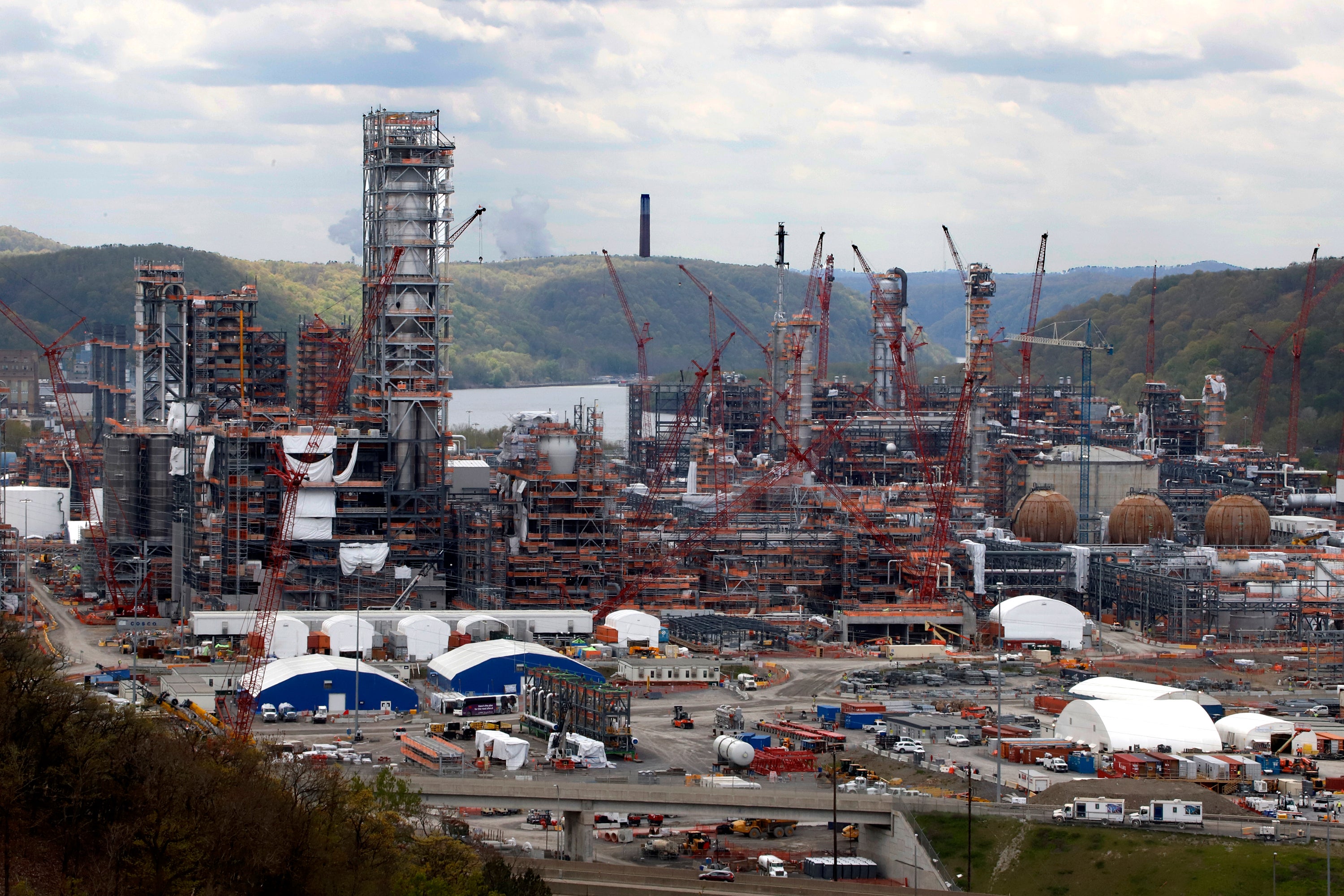Environmental groups sue Shell over air quality at massive new Pennsylvania petrochemical plant
An environmental group says in a new lawsuit that Shell is putting residents’ health at risk by persistently violating air quality standards at its massive new petrochemical refinery in western Pennsylvania

Shell is putting residents' health at risk by persistently violating air quality standards at its massive new petrochemical refinery in western Pennsylvania, an environmental group alleged in a lawsuit Thursday.
The “cracker" plant, located along the Ohio River about 30 miles (48 kilometers) outside Pittsburgh, opened in November and uses ethane from a vast shale gas reservoir underneath Pennsylvania and surrounding states to makes polyethylene, a plastic used in everything from consumer and food packaging to tires.
A federal lawsuit filed by the Clean Air Council alleges that operator Shell Chemical Appalachia LLC — a subsidiary of British oil and gas giant Shell plc — is violating state and federal limits on smog, as well as emissions limits in its state-approved operating plan.
Clean Air Council members who live near the plant are “concerned about the impact of the plant’s illegal pollution on their health and the health of their families,” the suit said, noting that smog can worsen respiratory conditions such as bronchitis and asthma. The plaintiffs asked a judge to order Shell to bring the plant into compliance, and impose civil penalties of up to $140,000 per day.
Shell spokesperson Curtis Smith said the company had no comment on the suit.
The plant has been shut down for repairs since early April after Shell said it identified a problem with its flaring system, which is designed to burn off unwanted gases. Shell expects to restart the offline units later this month, Smith said. The Clean Air Council said Shell has violated limits on visible emissions from its flares.
“We will continue to report out and comply with all regulations while also applying lessons learned and best practices to ensure our operations have no negative impact on people or the environment,” Smith said.
Shell was attracted to Pennsylvania because of a drilling boom in the vast Marcellus Shale natural gas field. The company had projected to spend $6 billion on the refinery, which took years to build. At full capacity, the plant is expected to produce 3.5 billion pounds (1.6 billion kilograms) of polyethylene annually.
Environmental advocacy groups had fought the plant and predicted that it would generate more plastic pollution, compounds that form smog and planet-warming greenhouse gases. Shell has said it is using the best available technologies to try to minimize air pollution.
“Shell’s persistent law-breaking must end," Joseph Minott, executive director of the Clean Air Council, said in a statement Thursday. “The community will not tolerate dangerous pollution events that risk the health of families across Beaver County and beyond.”
Bookmark popover
Removed from bookmarks